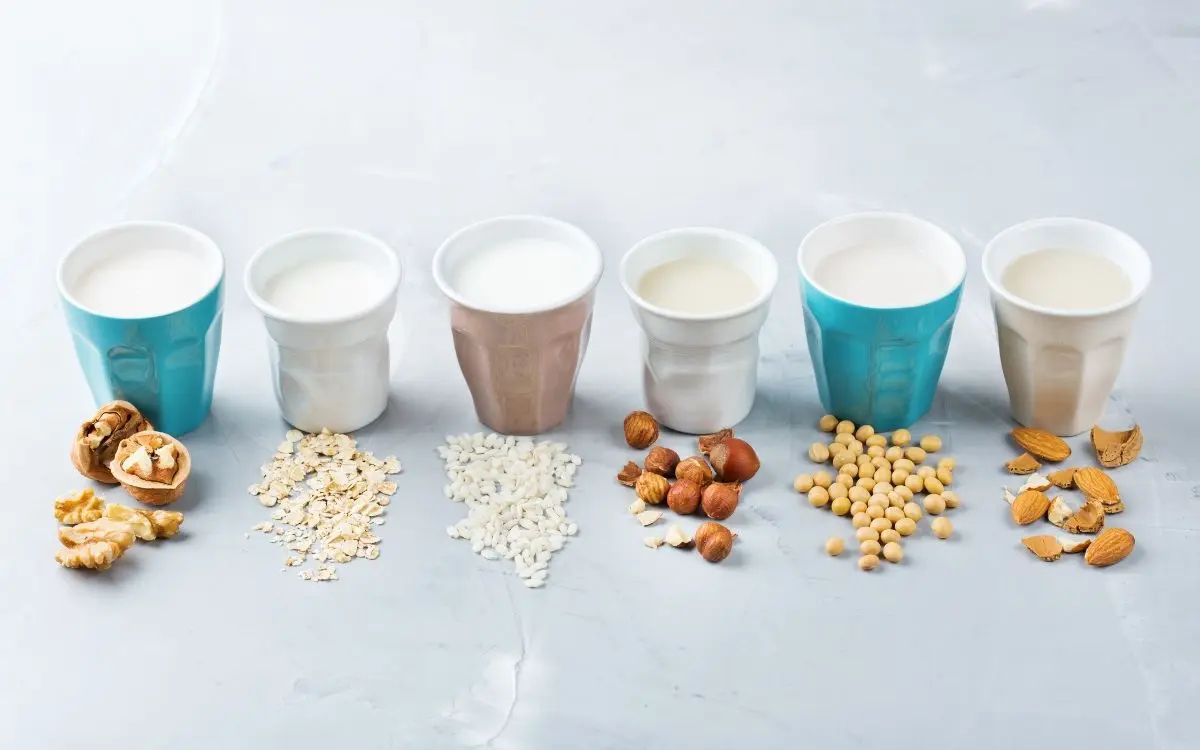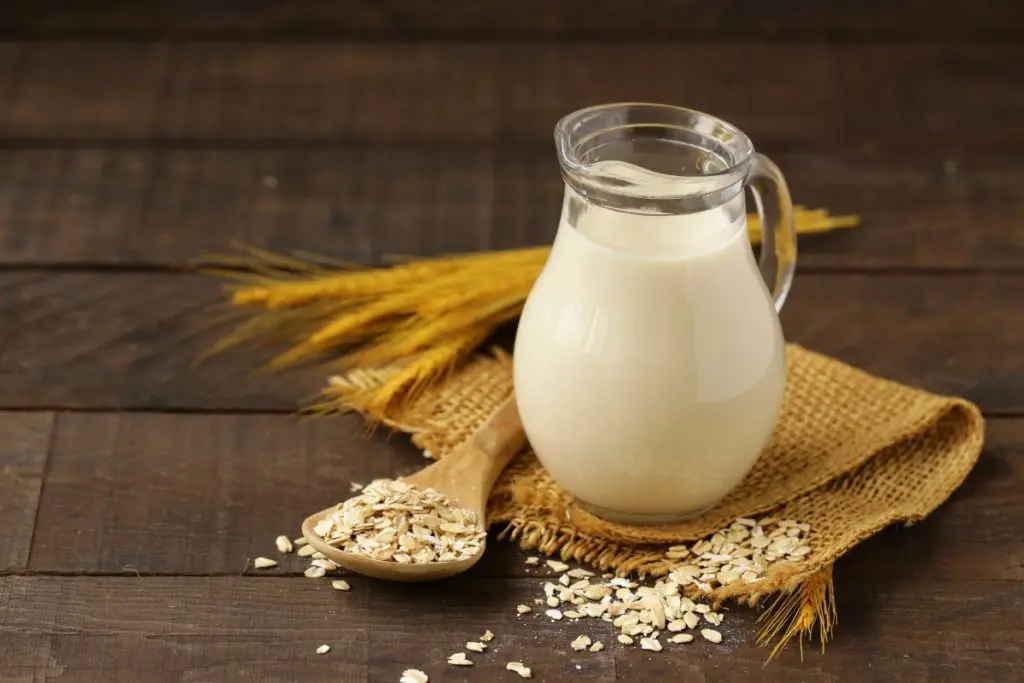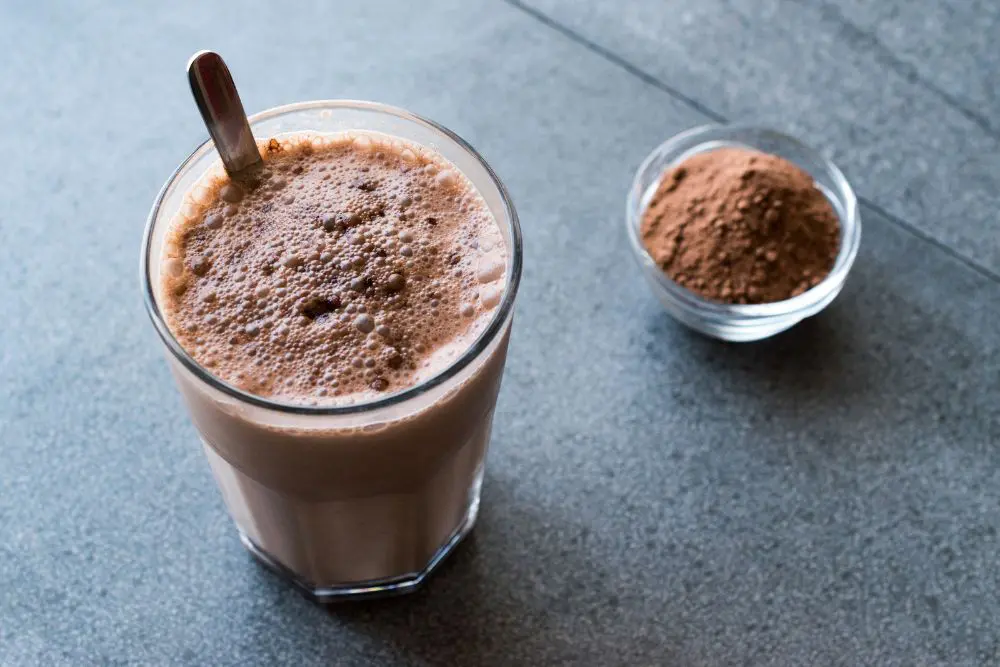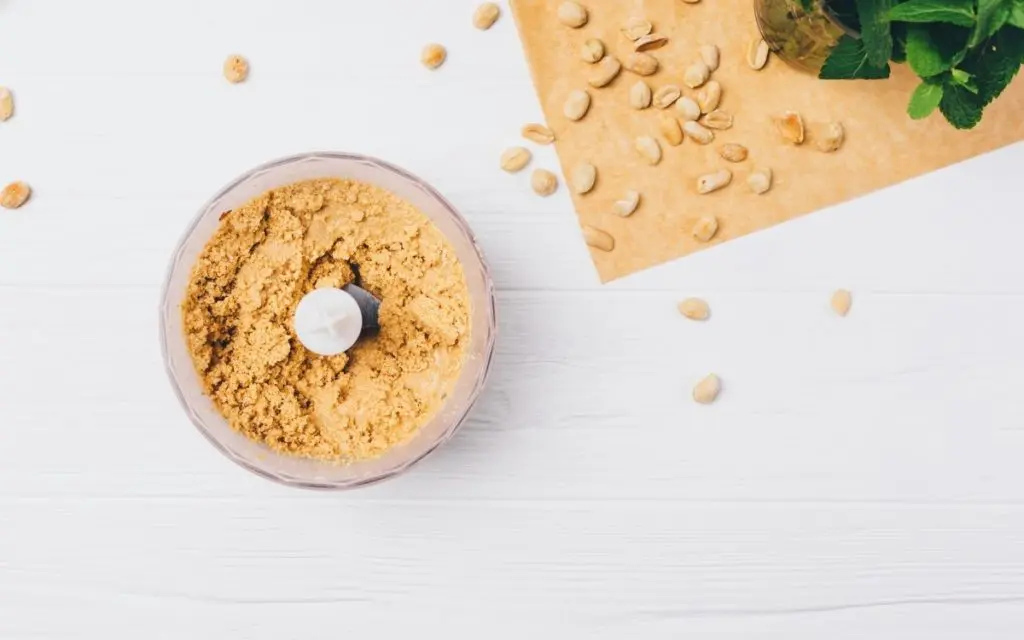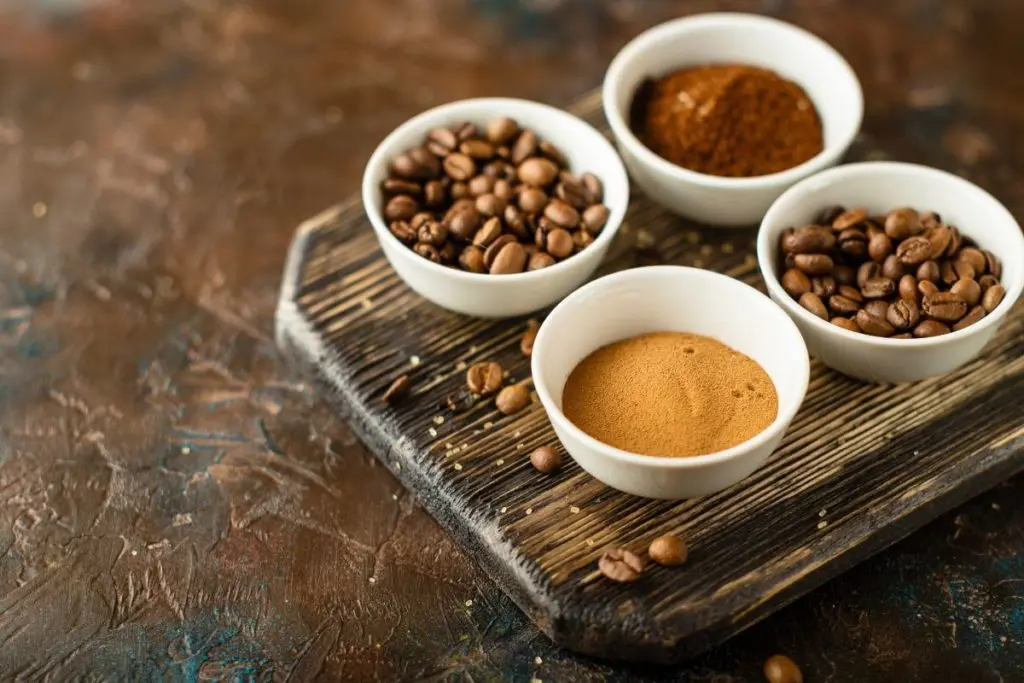There can be countless reasons to choose non-dairy milk over cow’s milk. The good news is that you have options when it comes to milk. Depending on a toddler’s nutritional needs, allergies, and a family’s dietary preferences, non-dairy milk can be a great option. There are several animal and plant-based alternatives out there that are full of nutrients. Here’s our suggestions for the best milk alternatives for toddlers.
8 Best Milk Alternatives for Toddlers
Starting with our top pick, let’s work our way down the list to discover all the best dairy-free options on the market.
1
Almond Milk
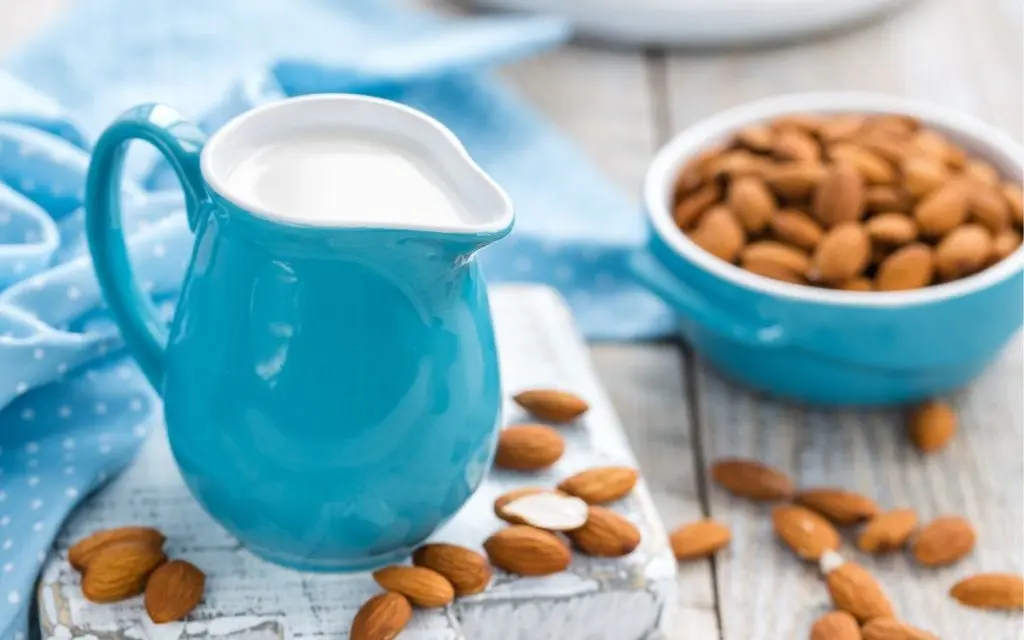
Calories: 30-50 | Protein: 7-12 g | Calcium: 20-450 mg | Fat: 25-35 g
We consider almond milk to be the best non-dairy milk for toddlers.
To make almond milk, almonds are finely ground and mixed with water. Thickeners, sweeteners, and flavorings might also be included in the mix to create a desirable taste and consistency. Most almond milk on the market contain added nutrients like vitamin A, vitamin D, and calcium. It’s essential to choose an almond milk that is low in sugar or unsweetened and is fortified with the necessary vitamins.
Parents also must consider if their child has a nut allergy. Be confident your toddler does not have a nut allergy before introducing almond milk into their diet. Almond milk contains significantly less fat and protein than cow’s milk. However, you can supplement fats and protein in other places in a diet, so this shouldn’t be a deal-breaker.
2
Oat Milk
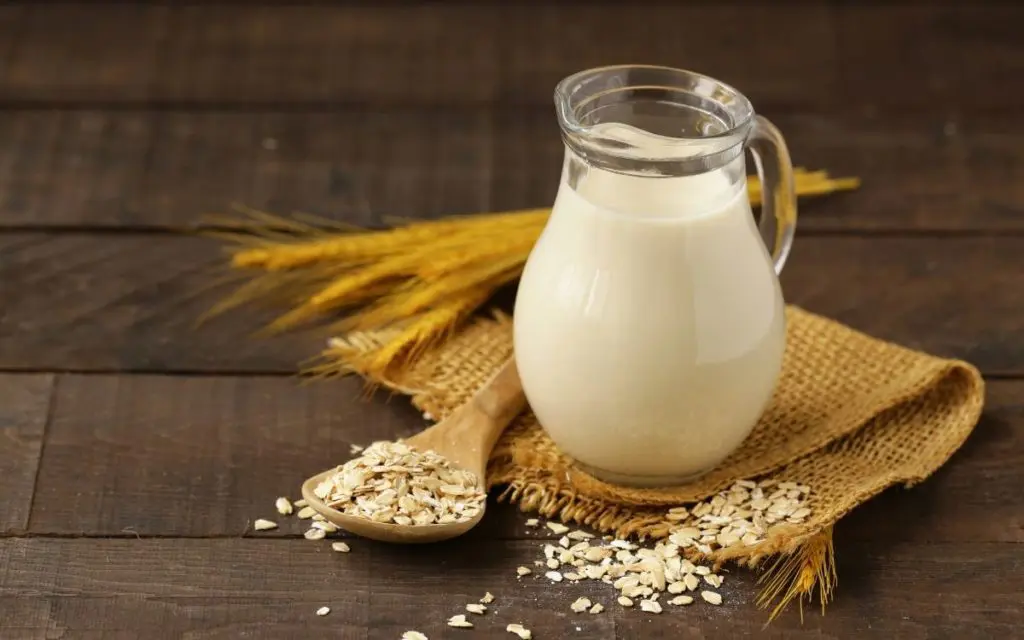
Calories: 30-50 | Protein: 4 g | Calcium: 350 mg | Fat: 25 g
If a child is lactose-intolerant and has an allergy to nuts, oat milk could be the perfect option. It’s safe for most children over 12 months old to drink. Kids also usually tend to enjoy the flavor of oat milk more than other non-dairy milk alternatives.
Growing children must get plenty of fat, calories, and protein to have a healthy diet. Compared to other non-dairy milks, oat milk tends to have more of each of these things. Some people might be tempted to make their oat milk at home due to the cost. However, store-bought oat milk is fortified with vitamins and minerals children need to grow, that homemade oat milk tends to lack.
3
Soy Milk
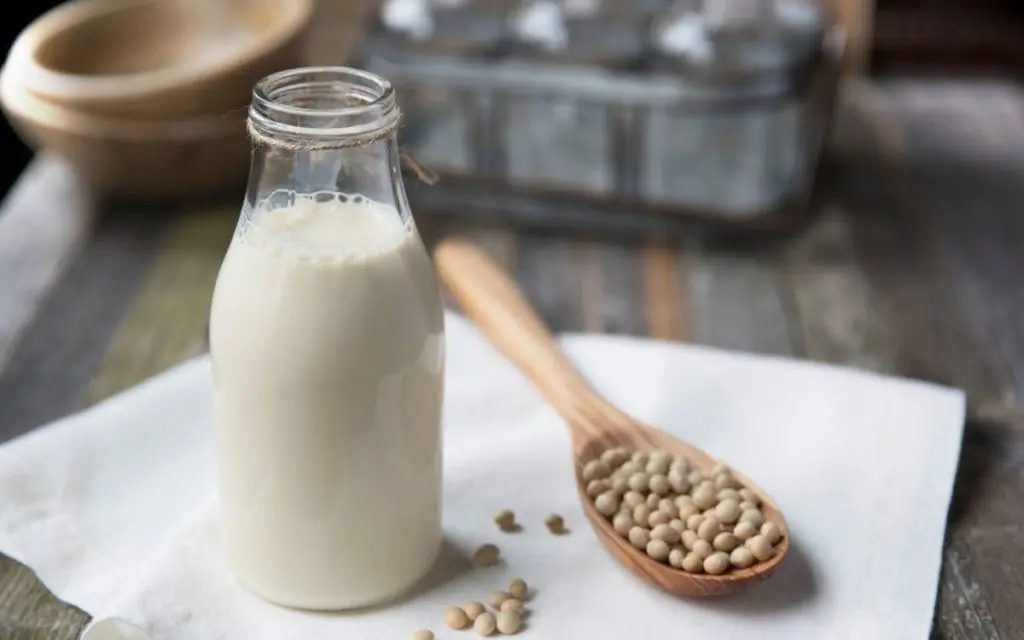
Calories: 80-120 | Protein: 7-12 g | Calcium: 40-300 mg | Fat: 4-6 g
Soy milk for toddlers must be unsweetened and fortified. Make sure the soy milk you choose is not low-fat or nonfat because fat is vital for healthy brain development in young children. You want the soy milk you choose to be fortified with vitamins, including vitamin A, vitamin D, and calcium.
For children who are allergic to cow’s milk, there is a roughly 15% chance that they’ll also be allergic to soy milk. Make sure it is safe for the child to consume soy before allowing soy milk into their diet. Like most alternative milk options, soy milk comes in a variety of flavors, allowing you to choose the one your child will like best if the taste of regular soy milk isn’t appealing.
4
Pea Milk
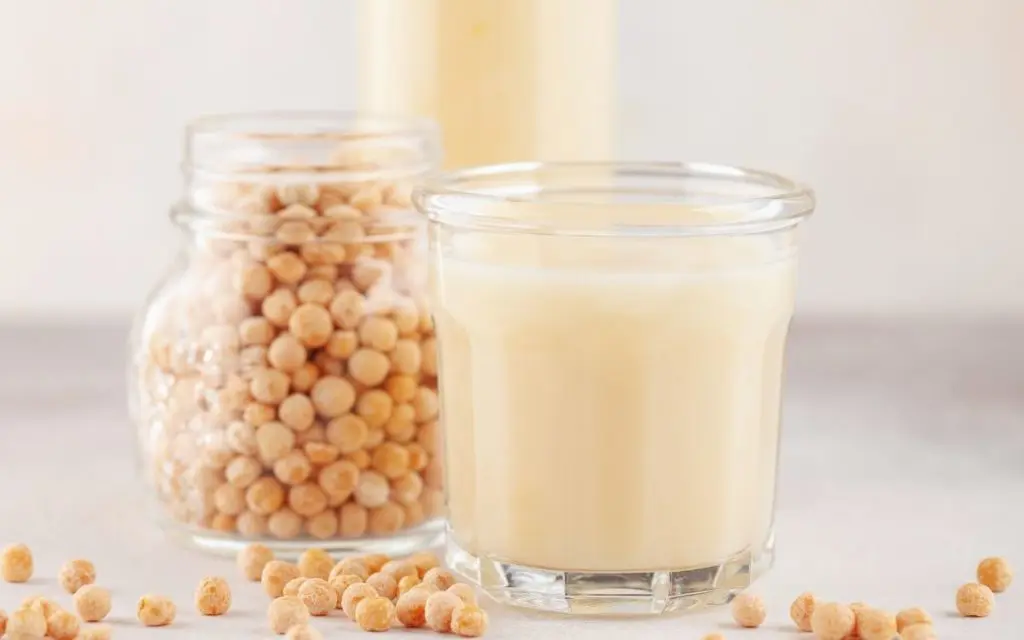
Calories: 75 | Protein: 8 g | Calcium: 450 mg | Fat: 4-5 g
While it may initially sound unappetizing, pea milk is actually becoming more popular among families hoping to give their children non-dairy milk. Though it might be the best plant milk for toddlers, it’s easily the most expensive milk alternative for toddlers. However, it might be worth the cost as it remarkably contains the same amount of protein as cow’s milk, 50% more calcium, and half as much sugar. It’s also high in potassium, omega-3s, iron, and vitamin D.
Pea milk is safe for all food and allergy restrictions, and it has a minimal impact on the environment. Most people who have tried pea’s milk are surprised by its smooth texture and unpea-like taste. It has a slightly chalky aftertaste, but this does little to deter from the overall great taste and health benefits that pea milk offers.
5
Coconut Milk
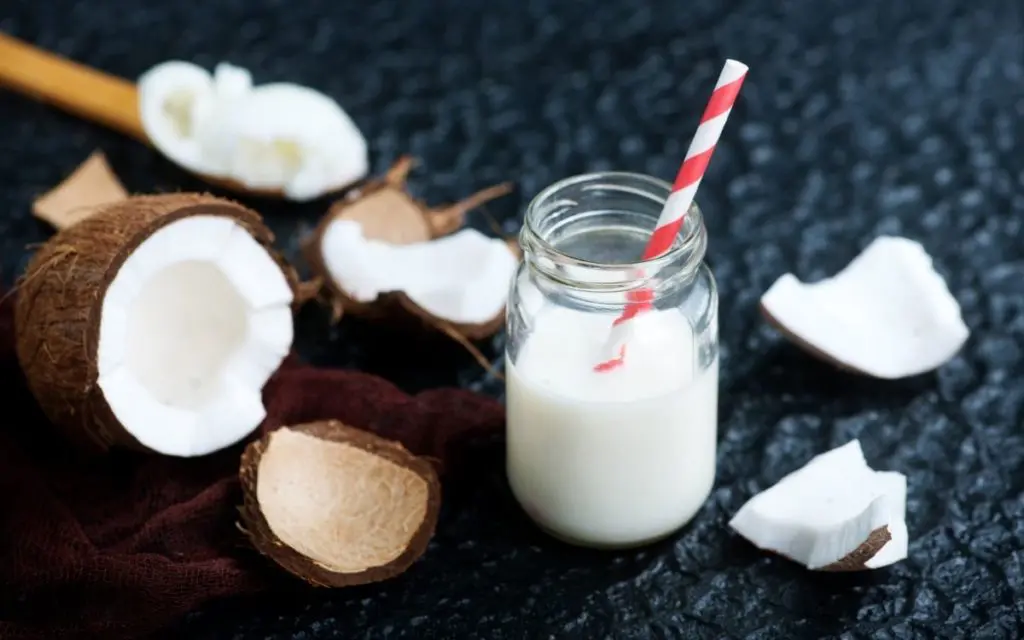
Calories: 45-60 | Protein: 0 g | Calcium: 40-450 mg | Fat: 4-5 g
Coconut milk is a non-dairy milk alternative that should be given sparingly to children. Canned coconut milk is high in saturated fat, with one cup having roughly 255% of your daily amount of saturated fat. This means it has more than 10 times the amount of fat as cow’s milk.
It’s generally considered good to choose plant-based fats over animal fats, but saturated fat should always be kept to a minimum.
Most commercial brands of coconut milk are somewhat diluted, containing less fat than the canned variety. Make sure that if you choose coconut milk, that it’s fortified with B12, iron, calcium, and vitamin D.
6
Cashew Milk
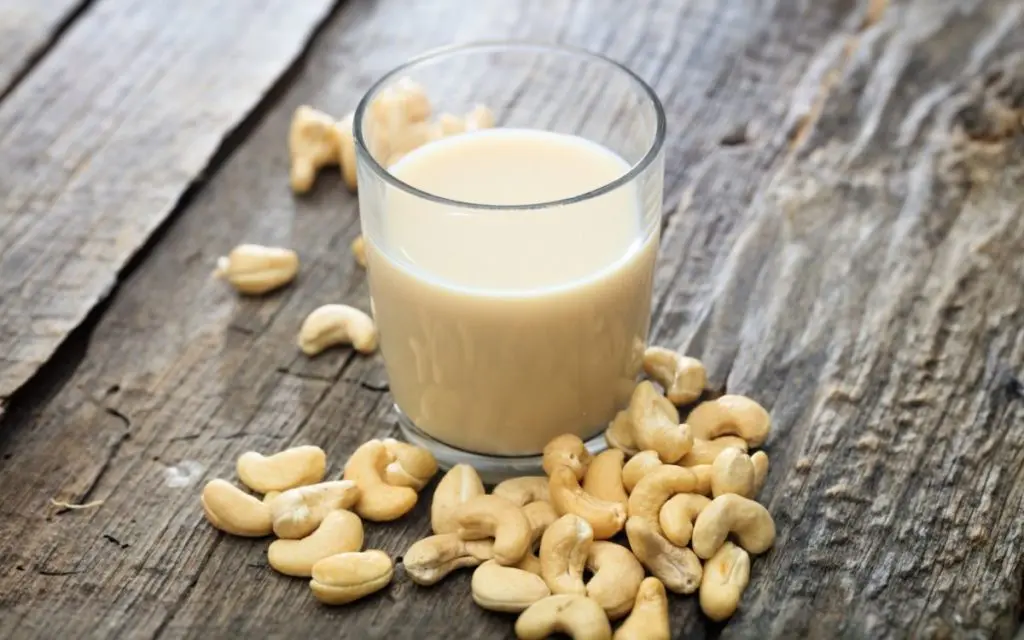
Calories: 25-40 | Protein: 0-1 g | Calcium: 100-450 mg | Fat: 2-35 g
Cashew milk might be tasty, but it is low in protein and fat. Compared to other nut-based milk, such as almond milk, cashew milk’s nutritional value is much less.
However, for parents struggling to introduce a nutrient-dense alternative milk into their toddler’s diet, cashew milk could be a place to start. It’s cheaper than pea milk and has the same smooth consistency that children love. It also tends to be sweeter, which is usually more appealing to picky toddlers. This can be a good jumping-off point for getting toddlers to be more open to exploring different kinds of milk.
7
Rice Milk
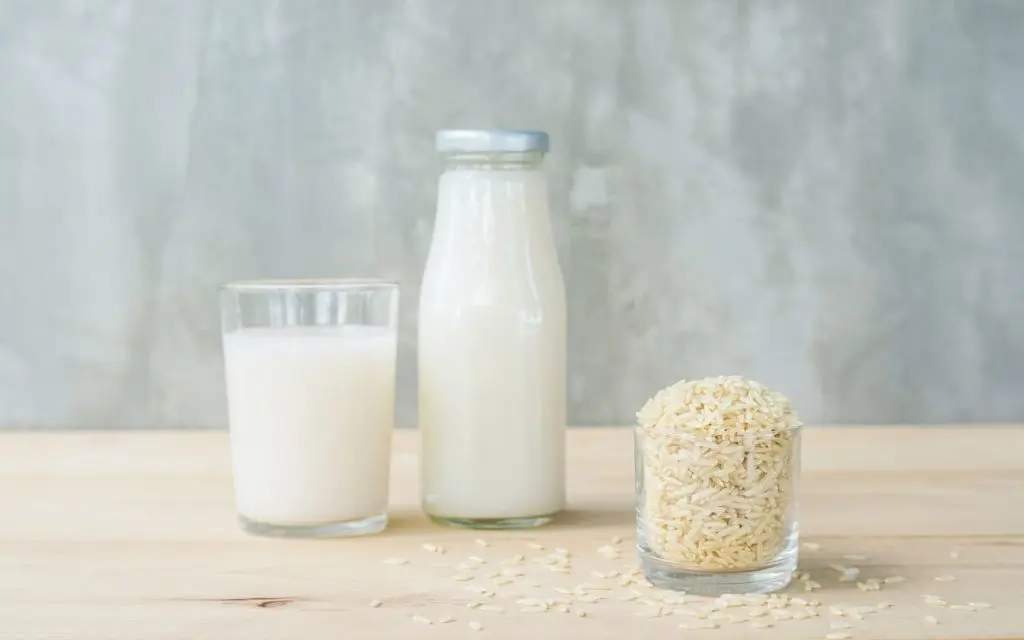
Calories: 70-130 | Protein: 0-1 g | Calcium: 450 mg | Fat: 2-25 g
The first thing to note about rice milk is that it contains significantly less protein than both cow’s milk and most other non-dairy alternatives. Rice milk is ideal for parents who have tried several different kinds of milk, but their child has developed some allergic reaction to each.
Compared to other non-dairy milks, rice milk does contain more sugar, making it taste sweeter and therefore more appealing to some young drinkers. It’s a product that can easily be fortified with vitamins and calcium. Therefore, it can also pack in the nutrients that most young people need. Most importantly, rice milk is safer for toddlers who have poor digestion or commonly have diarrhea.
8
Goat’s Milk
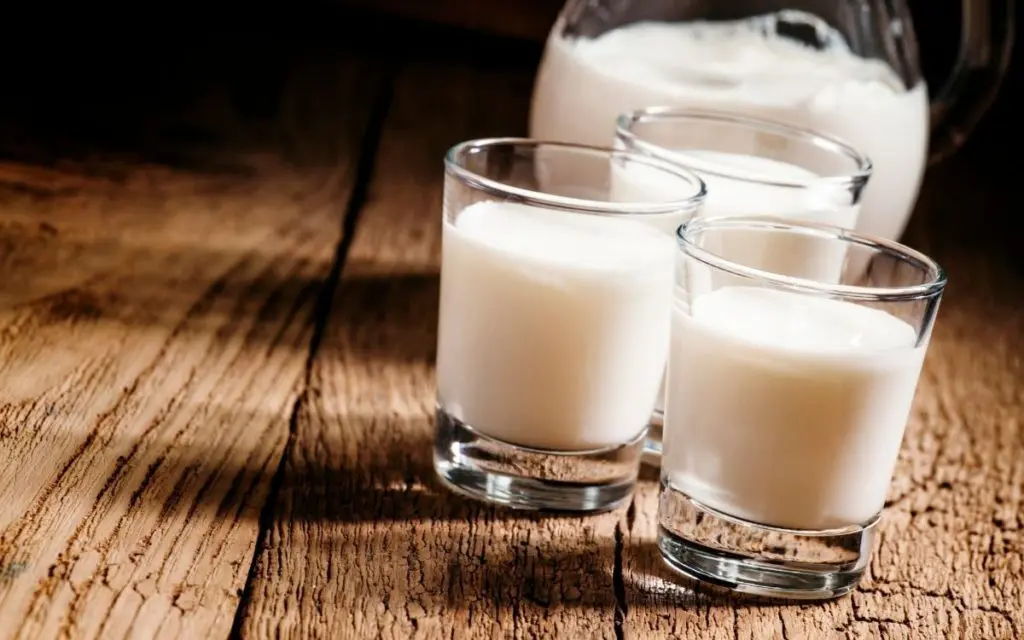
Calories: 140 | Protein: 8 g | Calcium: 320 mg | Fat: 10 g
Goat’s milk isn’t dairy-free, but it still stands as a good alternative for cow’s milk. Goat milk formula can be found at most grocery stores and are safe for newborns to 12-month olds. However, make sure to avoid fresh goat’s milk. Store-bought goat’s milk that is processed and fortified is the safest option for a child. It’s interesting to note that over half of people who have an allergy to cow’s milk do not show the same symptoms after drinking goat’s milk. Nutrition-wise, cow’s milk, and goat’s milk are pretty similar. One key difference is that goat’s milk helps support a toddler’s body in more fully absorbing nutrients. Goat’s milk also contains less lactose, making it ideal for little ones who have slight lactose intolerance.
We will also highlight goat’s milk as the best milk for a one year old that is transitioning from breastmilk. If your child has been exclusively breastfed, goats milk has a more similar taste and consistency as breastmilk. Therefore it might make for an easier transition when weaning.
What to Know About the Best Milk Alternatives for Toddlers
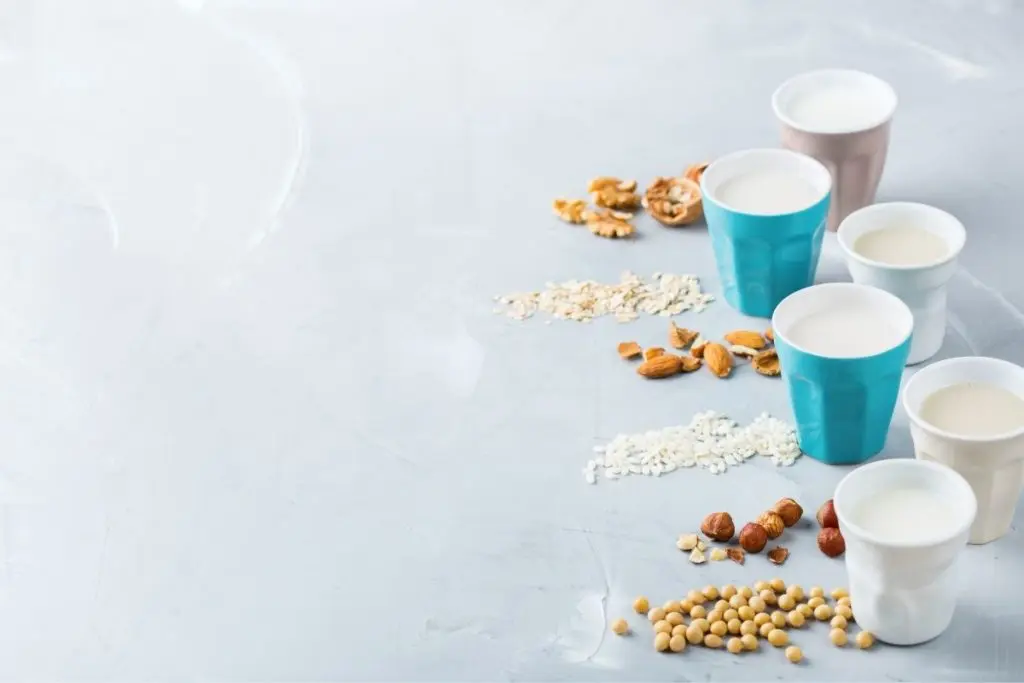
First and foremost, non-dairy milk should never replace formula or breastmilk within a child’s first year. These both contain necessary nutrients that are imperative to a child’s healthy development. However, once a child reaches 12 months, there is more flexibility with the kind of milk they are consuming. At this point you may want to consider one of the best milk alternatives for toddlers
Why Not Cow’s Milk?
Most children begin transitioning away from formula or breastmilk toward more solid food and cow’s milk when they turn one year old. However, cow’s milk is not always the best choice to turn to, and you may want to consider one of the best milk alternatives for toddlers. Usually, cow’s milk is recommended for toddlers due to being high in calories and nutrient-dense. It contains large amounts of calcium, Vitamin D, potassium, and protein — all of which promote healthy growth for toddlers.
While this may sound ideal for a growing child, there are several negative health attributes that might give parents pause when choosing what kind of milk to give their toddler. Cow’s milk is filled with hormones that help prevent the cow from getting sick, but can be harmful to growing children. Studies have shown cow’s milk to help children grow taller, but it also makes them more likely to be obese or overweight.
Finding a Balance of Nutrients
Dairy-free can be a good option for a toddler. Parents should still check a product’s nutrition facts prior to giving any milk alternative to their toddler. Most non-dairy milks don’t contain the same amount of fat, protein, and calcium as cow’s milk. These products must be fortified with various vitamins and minerals to be beneficial to a growing child.
Homemade Milk Alternatives for Toddlers
If you’re opting to make nut-based milk at home, keep in mind that this means the milk won’t be fortified. It will have significantly less protein and other nutrients when compared to cow’s milk. Should this be your choice, make sure children are getting these nutrients from other places.
Along the same lines, many alternative milk options contain more sugar than cow’s milk. This can be helpful if you’re trying to get a toddler to drink more milk, but it can cause problems with obesity in the long run. Make sure to use unsweetened milk and check the ingredients list for places where artificial sweetener has been added.
Further Reading
